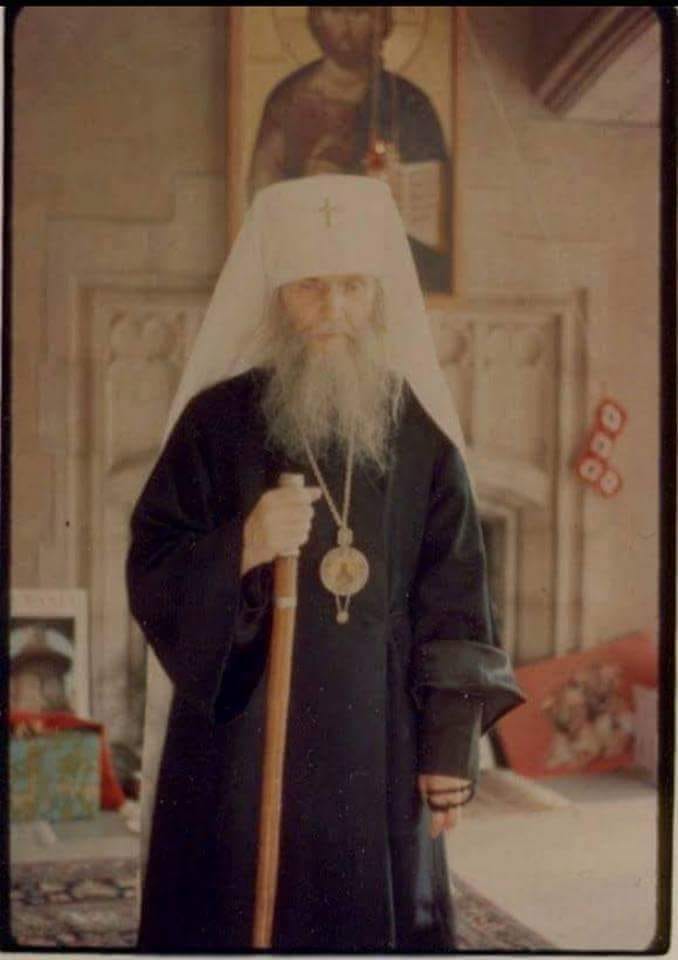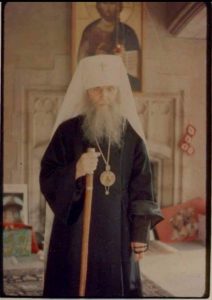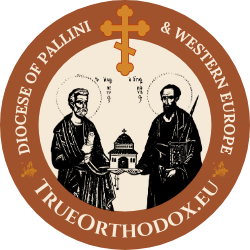A Letter from St. Philaret of New York Concerning Fr. Dimitry Dudko and the Moscow Patriarchate

A LETTER FROM METROPOLITAN PHILARET (VOZNESENSKY) TO A PRIEST OF
THE CHURCH ABROAD CONCERNING FATHER DIMITRY DUDKO AND THE
MOSCOW
PATRIARCHATE 
Exerpts from St.Metr.Philaret’s letter:
“I should also like to note the following. The Catacomb Church in Russia
relates to the Church Abroad with love and total confidence. However, one
thing is incomprehensible to the Catacomb Christians: they can’t understand
why our Church, which realizes beyond a doubt that the Soviet hierarchy has
betrayed Christ and is no longer a bearer of grace, nevertheless receives
clergy of the Soviet church in their existing orders, not re-ordaining them,
as ones already having grace. For the clergy and flock receive grace from
the hierarchy, and if it [the hierarchy] has betrayed the Truth and deprived
itself of grace, from where then does the clergy have grace? It is along
these
lines that the Catacomb Christians pose the question.
The answer to this is simple. The Church has the authority in certain cases
to employ the principle of economia condescension. The hierarch Saint Basil
the Great said that, in order not to drive many away from the Church, it is
necessary sometimes to permit condescension and not apply the church canons
in all their severity. When our Church accepted Roman Catholic clergy in
their orders, without ordaining them, she acted according to this principle.
And Metropolitan Anthony
[Khrapovitsky], elucidating this issue, pointed out that the outward form
successive ordination from Apostolic times that the Roman Catholics do have;
whereas the grace, which the Roman Catholic church has lost, is received by
those uniting [themselves to the
Church] from the plenitude of grace present in the Orthodox Church, at the
very moment of their joining. The form is filled with content, said Vladyka
Anthony.
In precisely the same manner, in receiving the Soviet clergy, we apply the
principle of economia. And we receive the clergymen from Moscow not as ones
possessing grace, but as ones receiving it by the very act of union. But to
recognize the church of the evil-doers as the bearer and
repository of grace, that we cannot do, of course. For outside of Orthodoxy
there is no grace; and the Soviet church has deprived itself of grace.
In concluding my lengthy letter, I should like to point several things out
to you, Father. The Bishops’ Sobor resolved to be guided by and to fulfill
the Testament of Metropolitan Anastasy, in which the late First Hierarch
bade us not to have any communion with the Soviet church
whatsoever, not only no prayerful communion, but not even ordinary contact.
On what basis then have you and other clergymen had direct relations with
Father Dudko? And have written him letters, etc.? No matter how sincere a
man you may have considered him to be, nevertheless, can your private
opinion annul a ruling adopted by the Church? Now, had Father Dudko said: I
am breaking with the official church and leaving her then you could have
entered into lively contact
with him. But in the absence of that, your actions constitute a violation of
ecclesiastical discipline. Dudko wrote to me personally, but I did not
answer him although I could have said much. By the
way, on what basis did you, even before this, take into your head to
commemorate an archbishop of the Soviet church during the Great Entrance?
Who gave you the right to do that, which hierarch
who, how, where, when?.. Be more careful, my dear, zealous, but, ah, too
impetuous fellow minister!”






